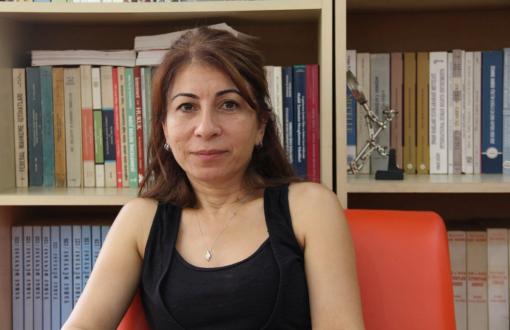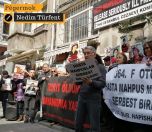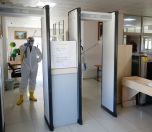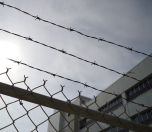Click to read the article in Turkish
"The bill shows that seriously ill prisoners behind bars for political reasons will again not be released, remaining in prison condemned to death."
It is how Human Rights Association (İHD) İstanbul Branch Chair lawyer Gülseren Yoleri has commented on the bill on criminal enforcement that also foresees amendments relating to the ill prisoners.
"The Bill of Law Foreseeing Amendments to the Law no. 2/2762 on the Execution of Sentences and Security Measures and Some Laws" was approved by the Parliamentary Justice Commission on April 3 and it will be debated at the General Assembly of the Parliament today (April 7).
According to this legislative proposal, not only the convicts, but also the arrestees who have a medical report documenting that "they are not in a state to remain in prison" will be released. However, it is not yet certain whether the practice will be any different than today.
The İHD previously announced that as far as they can document, there are 1,564 ill prisoners in Turkey, 591 in serious condition. The actual number is much higher, the association has also noted.
Is it a bill of 'amnesty' rather than outbreak?
Indicating that the current laws have already governed the measures that can be taken in the event of a virus outbreak, Yoleri says:
"While the bill on criminal enforcement foresees amendments that could come to mean sentence reductions for offenses that could cause public indignation, political offenses are being excluded."
According to Yoleri, a confusion has been created by the fact that the proposal was prepared in an environment of outbreak and also foresees amendments relating to this. That being the case, the effects of the articles that can be considered an "amnesty" will be understood later on, adds Yoleri.
Release of politicians depends on judiciary's approval
Yoleri also notes that the bill to be debated at the Parliament foresees the same procedure as to the medical reports to be received by ill prisoners.
In other words, as it is already the case, the bill stipulates that the medical reports issued by the full-fledged hospitals shall be valid only if they are approved by the Forensic Medicine Institution:
"The bill stipulates that the reports taken from hospitals shall be approved by the Forensic Medicine. The current legislation says the same thing. In other words, a process of Forensic Medicine will be operated. The reports issued by public hospitals were already presented to the Forensic Medicine for approval. So, there is no special betterment in that regard.
"We have long been saying that the Forensic Medicine Institution has a discriminatory treatment of political prisoners by acting with political motives. We see that this picture will continue as it was before.
"Moreover, the current law stipulates judicial discretion for release even when a medical report is received. Relying on the law which sets 'not posing a danger to society' as a condition, the courts have discretionary power based on 'conviction'. This power remains as it is in the bill of law. Therefore, the release of political prisoners also remains dependent on the discretion of the judiciary. If the discretionary power of the judiciary was abolished by this bill, then, we could talk about a positive change."
At this point, Yoleri underlines that "it is not possible to talk about a betterment or a practice free from discrimination."
'It can lead to release of ill prisoners with reports'
Concluding her remarks, Gülseren Yoleri reminds us that, with their works and reports, they have been demanding that the condition of a medical report to be issued by the Forensic Medicine Institution be lifted:
"We are of the conviction that the institution does not prepare the reports in an objective manner and that it acts with political motives. We were requesting that the reports to be issued by full-fledged public hospitals be also a basis for release. However, these requests have remained inconclusive. If this condition had been removed in the bill, then, it could be considered a progress. In its current form, we foresee that the discriminatory attitude of the Forensic Medicine will continue.
"Apart from that, the courts could even reject the requests for release of ill prisoners with Forensic Medicine Institution reports of 'They cannot stay in prison.' There are several seriously ill prisoners who have not been released despite having this medical report. Perhaps, the bill of law can lead to the deferment of the execution of their sentences."
While it is indicated that the ones convicted under the Anti-Terror Law are outside the scope of this regulation, lawyer Yoleri notes that the legal regulation on ill prisoners is out of this discussion, adding that we will see how it will function in practice in the upcoming days. (AS/SD)












-132.jpg)







